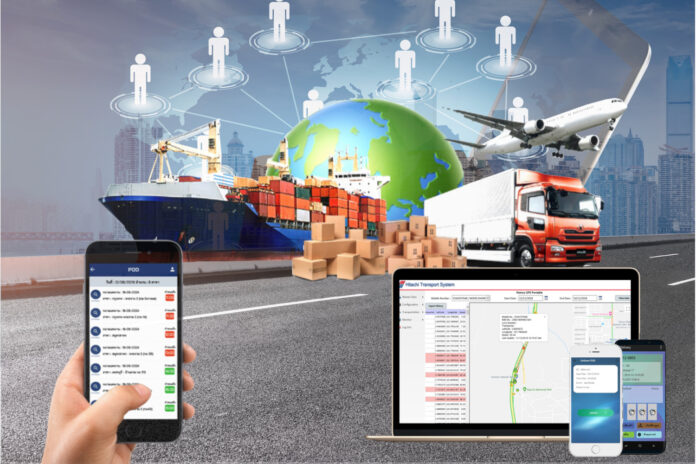Transportation management systems (TMS) are software solutions that help businesses manage their transportation and logistics operations. These systems are designed to optimize route planning, track shipments, streamline communication between carriers and shippers, and reduce transportation costs. In today’s fast-paced business world, customer satisfaction and delivery times are critical to success in the logistics industry. This blog will explore the impact of transportation management systems on customer satisfaction and delivery times in logistics.
Benefits of transportation management systems
Optimization of route planning and tracking
One of the primary benefits of TMS is its ability to optimize route planning and tracking. TMS software can analyze traffic patterns, road closures, and weather conditions to provide the most efficient routes for shipments. This not only saves time and money but also reduces the environmental impact of transportation.
Streamlining of communication between carriers and shippers
TMS software can also streamline communication between carriers and shippers. This ensures that all parties involved in a shipment are on the same page and that any issues are addressed promptly. This not only improves efficiency but also reduces the likelihood of errors or delays.
Improved visibility and accuracy of delivery times
TMS software provides real-time visibility into the location and status of shipments. This allows shippers to accurately predict delivery times and provide customers with up-to-date information on their orders. This level of transparency improves customer satisfaction and reduces the likelihood of missed deliveries or unhappy customers.
Reduction in transportation costs
TMS software can help businesses reduce their transportation costs by optimizing routes and reducing the number of empty or partially loaded trucks on the road. This not only saves money but also reduces carbon emissions and contributes to a more sustainable supply chain.
Effect of TMS on customer satisfaction
Timely delivery and fulfillment of orders
TMS software can help businesses deliver orders on time and in full. This improves customer satisfaction and helps to build customer loyalty. Timely deliveries also reduce the likelihood of returns or cancellations, which can be costly for businesses.
Accurate tracking and status updates
TMS software provides accurate tracking and status updates on shipments. This allows customers to track their orders and provides businesses with the data they need to improve their logistics operations. Accurate tracking also helps to reduce the likelihood of lost or damaged shipments.
Enhanced customer experience
TMS software can help businesses provide an enhanced customer experience by improving the speed and accuracy of deliveries. This builds trust with customers and can help to differentiate a business from its competitors.
Customer retention and loyalty
TMS software can help businesses retain customers and build loyalty. By providing timely deliveries and accurate tracking information, businesses can improve customer satisfaction and encourage repeat business.
Effect of TMS on delivery times
Reduction of transit times and delays
TMS software can help businesses reduce transit times and delays. By optimizing routes and providing accurate tracking information, businesses can ensure that shipments arrive at their destination as quickly and efficiently as possible.
Improvement in on-time delivery performance
TMS software can help businesses improve their on-time delivery performance. This improves customer satisfaction and reduces the likelihood of returns or cancellations.
Increased efficiency in logistics operations
TMS software can improve the efficiency of logistics operations by reducing the amount of time and resources needed to manage shipments. This allows businesses to focus on other areas of their operations, such as customer service or product development.
Competitive advantage in the market
TMS software can provide businesses with a competitive advantage in the market. By improving delivery times and customer satisfaction, businesses can differentiate themselves from their competitors and attract new customers.
Future outlook
Advancements in TMS technology
Advancements in TMS technology, such as the use of artificial intelligence and machine learning, are expected to improve the functionality and efficiency of TMS software in the future. This will allow businesses to further optimize their logistics operations and provide even better customer experiences.
Integration with other logistics technologies
TMS software is expected to become more integrated with other logistics technologies, such as warehouse management systems and transportation analytics software. This will provide businesses with a more comprehensive view of their logistics operations and enable them to make more informed decisions.
Emerging trends and opportunities
Emerging trends in logistics, such as the rise of e-commerce and the growing demand for sustainable supply chains, present new opportunities for businesses that use TMS software. TMS can help businesses manage these new challenges and take advantage of emerging opportunities.
Importance of continuous improvement
As with any technology, continuous improvement is essential to ensure that TMS software remains relevant and effective. Businesses that use TMS software will need to stay up-to-date with the latest advancements and trends in the industry to ensure that they are getting the most out of their investment.
In conclusion, transportation management systems have a significant impact on customer satisfaction and delivery times in logistics. By optimizing route planning, streamlining communication, improving visibility, and reducing transportation costs, TMS software can help businesses deliver orders on time and in full, improve customer satisfaction, and build customer loyalty. TMS software also provides businesses with a competitive advantage in the market and presents new opportunities for growth and innovation. With advancements in technology and integration with other logistics systems, the future of TMS software looks bright. It is essential for businesses to consider TMS for their logistics operations and to continuously improve their use of this technology to remain competitive in the ever-changing logistics industry.
One of the leading providers of transportation management systems is Manhattan Associates – Transportation Management System. Their software offers a range of features that help businesses optimize their logistics operations, including route planning, carrier management, and real-time visibility. By using Manhattan Associates – Transportation Management System, businesses can improve delivery times, reduce transportation costs, and provide better customer experiences. With a focus on continuous improvement and innovation, Manhattan Associates – Transportation Management System is well-positioned to help businesses meet the challenges of today’s logistics industry and take advantage of emerging trends and opportunities.





